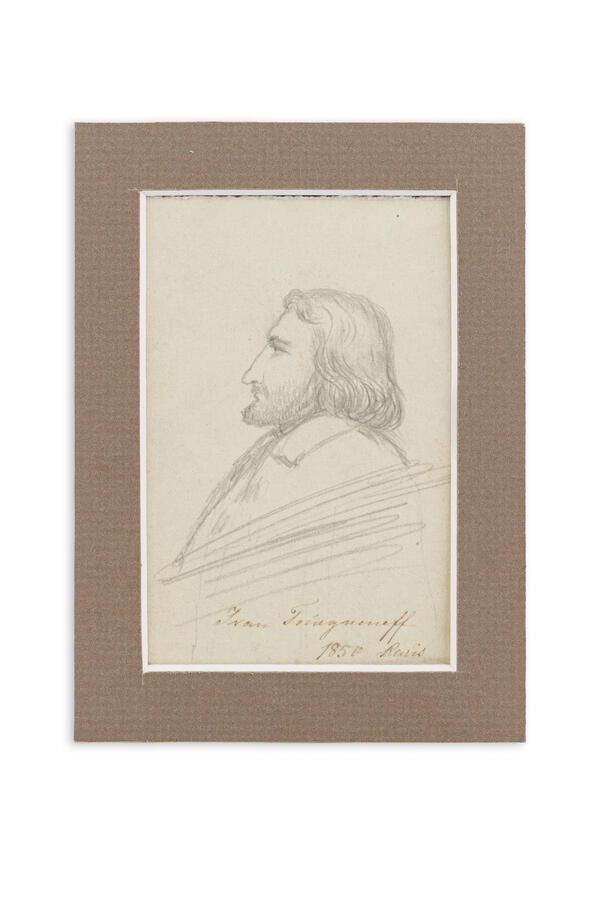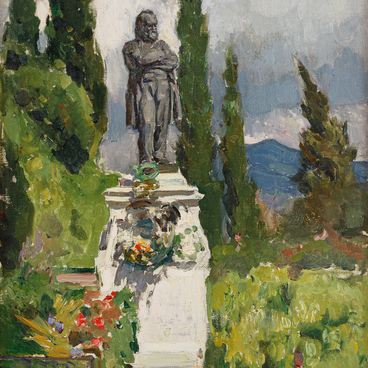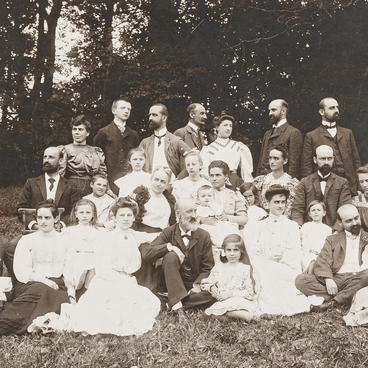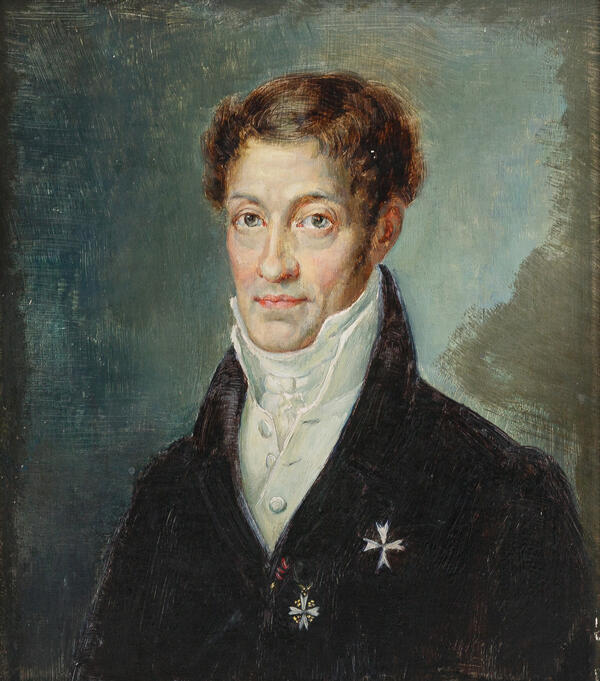Natalya Alexandrovna Herzen — the writer’s wife — was a good artist, and her talent was inherited by her daughter Tata. The museum’s collection contains portraits where Natalya Herzen depicted her husband, their children, acquaintances, and family friends. Those include a profile image of the Russian writer Ivan Sergeyevich Turgenev. The Herzen family became friends with him in the late 1840s, when they were already living in Europe. Actually, Alexander Herzen and Ivan Turgenev were introduced to each other in Moscow, in 1844, but they did not grow close then. Nevertheless, as fate would have it, the writers met again: first in Berlin, and then in pre-revolutionary Paris. They witnessed the “public fervor” on the eve of the revolution and the tragedy of the republic’s demise.
From the summer of 1848, Ivan Turgenev was welcomed in Alexander Herzen’s home, and the latter said that he was now “quite content” with Turgenev. The meetings between Herzen and Turgenev became more frequent and, as Natalya Herzen put it, “somewhat warmer”. On the eve of his departure for Russia in the spring of 1850, Turgenev visited Herzen in Paris almost every day. The presented small sketch was made during one of those visits.
When describing the family’s life at the time, Natalya Herzen noted “a passion for drawing shared by everybody”, so portraits were made even by guests, including Turgenev. In one of his letters of the spring of 1850, Alexander Herzen supported her account, “The portrait mania has possessed our household and does not let go of its grip.” Perhaps, there are drawings by Ivan Turgenev still kept somewhere.
Against the backdrop of “portrait mania” in the
Herzens’ family life, dramatic events took place: Natalya Herzen became
infatuated with the German poet Georg Herwegh. Later, Alexander Herzen
described this situation in his book “My Past and Thoughts”. Turgenev read
Alexander Herzen’s memoirs after Natalya Herzen had already passed away and
remarked, “All this is written in tears and blood: it burns, and it stings.” He
also praised the image of Herzen’s wife in the book by saying,




